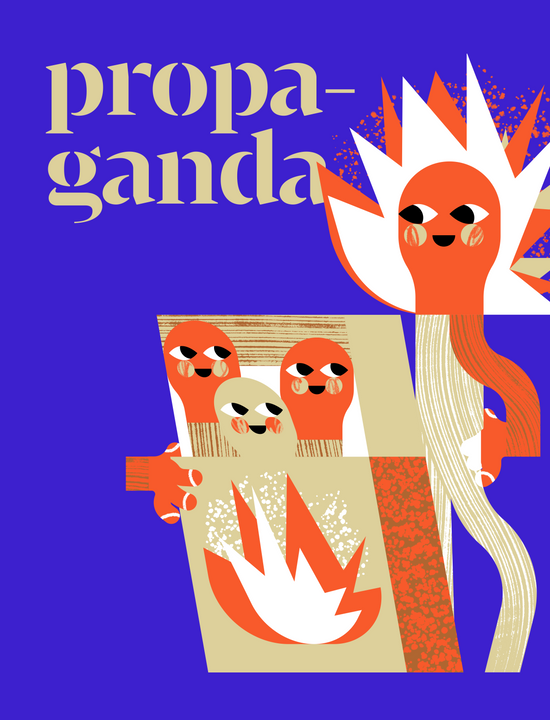The ancient Greeks
The first traces of propaganda can be found in ancient Greece. In the Athenian democracy - the oldest in the world - citizens were very aware of their own ideas and convictions. They were given the opportunity to share these in order to help shape policy.
Differences in opinion on religious and political matters were at the origin of the first forms of propaganda. Because there were no papers, radio programmes or films back then, the Greeks spread their propaganda through the legal system, theatre and rhetoric.
The Middle Ages
Many years later, in 1622, Pope Gregorius XV would coin the term ‘propaganda’. He founded the ‘Sacra congregatio de propaganda fide’ in Rome: a commission of cardinals in charge of converting the non-believers. Later, under Pope Urbanus VIII, a propaganda college was created to train priests for such missions. At that time, propaganda was still considered an honourable term.
World War I and II
Ever since the Greeks introduced it, there have been forms of propaganda in our society in varying quantities. It was used during the English civil war, during the American battle for independence and during the French Revolution. But it wasn’t until World War I that the term gained a negative connotation. Governments used propaganda to justify the many sacrifices and costs the war entailed in order to get the population to accept these consequences.
The first official propaganda bureaus also arose during World War I, like the Office de la Propagande belge (1916) in Belgium. Such bureaus were indispensable for the totalitarian regimes during World War II. There were even ministries for propaganda, like in nazi Germany, aimed at suppressing the population and spreading the ideas of the ruling party.
What about today?
Until today, propaganda is prevalent in our world. You find it everywhere: in politics, in journalism, sometimes even in education. And that’s not all bad. Not all propaganda is untrustworthy, and there are types of propaganda that serve a socially beneficial purpose.
